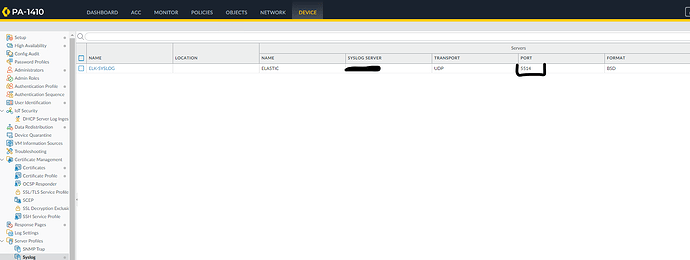Hello everyone,
I'm having a problem collecting logs from my Palo Alto firewall to my Elastic stack (Elasticsearch, Logstash, Kibana).
I configured the Palo Alto firewall to send logs in Syslog format to Logstash (see image 1).
I configured the /etc/logstash/conf.d/pa.conf file on the elastic server in the following form to retrieve the logs : input {
udp {
port => 514
type => "paloalto"
}
}
filter {
if [type] == "paloalto" {
grok {
match => { "message" => "%{SYSLOGTIMESTAMP:timestamp} %{HOSTNAME:firewall} %{DATA:process}: %{GREEDYDATA:log_message}" }
}
date {
match => [ "timestamp", "MMM dd HH:mm:ss" ]
target => "@timestamp"
}
}
}
output {
if [type] == "paloalto" {
elasticsearch {
hosts => ["A.B.C.D:9200"]
index => "paloalto-logs-%{+YYYY.MM.dd}"
}
}
}
The ports are open, but despite this, no Palo Alto logs appear in Elasticsearch/Kibana. Thanks in advance for your help!





